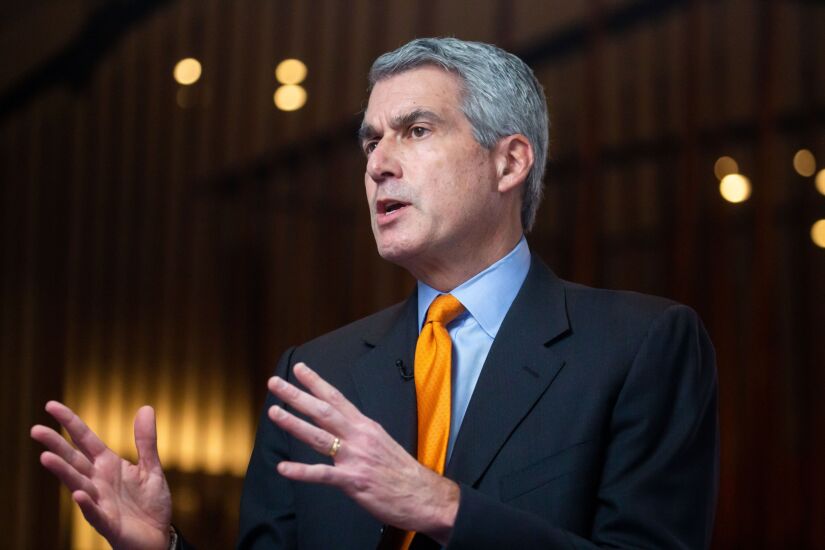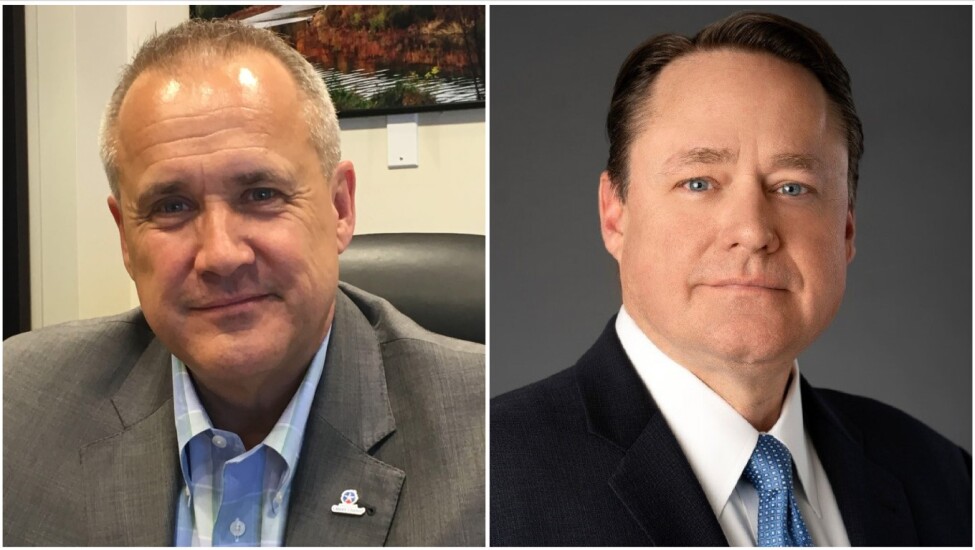In August's roundup of top banking news: The true cause of Heartland Tri-State Bank's failure, increased industrywide frugality among banks, two prominent credit union trade groups announce plans to combine and more.

BMO, Wells Fargo and USAA are latest banks to report layoffs
The job cuts come as banking executives express
Between April 2021 and July 2023, total employment in credit intermediation jobs, which include loan officers and tellers at depository institutions, fell by 45,000 to 2.67 million, according to census data.

Regulator: Failed Kansas bank 'victim of a scam'
"The bank fell victim to a scam," Kansas Banking Commissioner David Herndon told American Banker Aug. 4.
Herndon said that he was not privy to details such as who perpetrated the scam, but it was his understanding that a federal investigation was ongoing. He said Heartland self-reported the incident.
Kansas regulators

Discover CEO's sudden exit follows a wave of compliance issues
John Owen, a 38-year banking veteran and a member of Discover's board, has been appointed interim CEO and president while Discover works with a global executive search firm to find a replacement, Discover said in a press release. Hochschild will serve in an advisory capacity through the end of this year, according to the release.
"The Board and Roger have agreed that now is the right time to transition leadership, and we thank Roger for his 25 years of service to the company," said Tom Maheras, Discover's board chairman, in the release.

Banks, usually hungry for growth, are now looking to shrink
The goal isn't universal, as some banks still see opportunities and are picking up the pieces their competitors are leaving behind. But much of the industry is slimming down.

Why private investors are scooping up small banks
Sometime between Silicon Valley Bank's
In Texas, separate investor groups are in the process of buying Eden Financial in San Angelo and Farmers State Bank in Shelby County.
In Cheyenne, Wyoming, a local acquirer is purchasing Wyoming Bank & Trust. And in Georgia, a group of unnamed investors from Jacksonville, Florida, is acquiring The Claxton Bank.

NAFCU, CUNA credit union trade groups agree to merge
NAFCU and CUNA, the two most prominent U.S. credit union trade groups, announced Aug. 1 that the combined organization would be called America's Credit Unions.
Jim Nussle, president and chief executive of CUNA, would lead the combined entity.
"By bringing together these two powerful credit union associations we are doubling down on our commitment to ensure the growth and prosperity of all credit unions across the nation and the 137 million Americans they serve," Nussle said.

Judge's CFPB data rule pause could open a lane for late fee rule opponents
Trade groups have already said they
"They should all sue," said Alan Kaplinsky, senior counsel at the law firm Ballard Spahr. "If the CFPB were acting properly, they would decide not to finalize any regulation until after the Supreme Court has decided the case early next year. All the final rules — and that includes the credit card late fee regulation — should be put on ice."

The credit card climate crisis
That's enough plastic, laid end to end, to wrap around the planet more than six times. And issuers replace these cards every three to five years — leaving the old ones to sit in landfills for hundreds of years before they fully decompose, if they ever do.
Plastic leakage into the environment will almost double, to 44 million tons, in 2060, according to the
Despite these risks, most banks and credit unions plan to push out more plastic in the next five years, according to a July survey of 109 card issuers conducted by American Banker's parent company, Arizent, for this story. Thirty-eight percent of respondents said they plan to increase the number of physical cards they issue by up to 10%, and 31% said they plan an increase of more than 10%.

Does the commercial lending slump hint at a looming recession?
Bank lending to commercial clients — businesses big and small — has fallen from January highs as companies' wariness over the economic outlook persists. The outlook for loan growth isn't particularly strong either, thanks to a combination of reduced demand from commercial clients and tighter standards from banks.
That mix can damage the economy as businesses slow their expansions, hire fewer people and ultimately set off dominoes that will result in layoffs. The U.S. economy has proved to be surprisingly resilient over the past year, but the slowdown in commercial borrowing will be the latest test.

Capital reform is coming, but not without a fight
Leaders of the Federal Reserve, Federal Deposit Insurance Corp. and Office of the Comptroller of the Currency seem to be in strong alignment on new risk-based capital rules for banks with at least $100 billion of assets and they have — at least tentatively — enough support within their agencies to enact the plan.
But ensuring the rules — which would increase aggregate capital obligations within the affected banks by an average of 16% — are not scuttled by a legal challenge or congressional intervention could require regulators to address concerns raised by outside groups and members of their governing boards.





